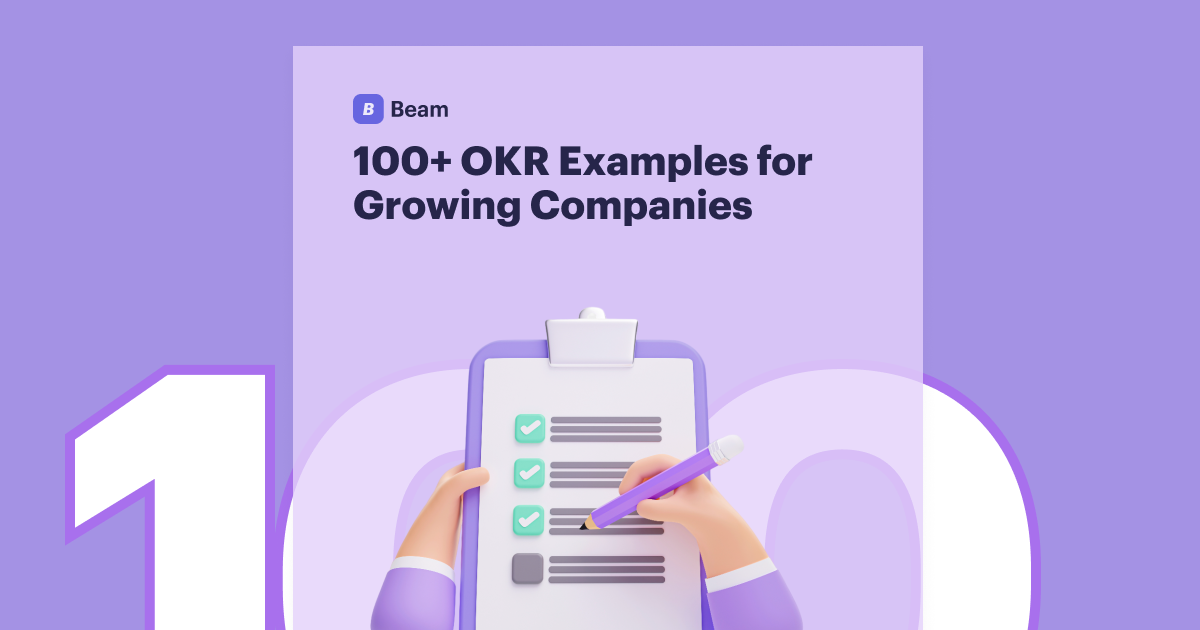Regular Check-ins and Reviews
The OKR cycle isn't a "set it and forget it" process. It thrives on consistent engagement. Regular check-ins and reviews are the pulse of your OKR system, providing opportunities to assess progress, identify roadblocks, and make necessary adjustments.
Types of OKR Check-ins and Reviews
- Weekly OKR Check-ins (Team Level):
- Purpose: The most frequent and crucial touchpoint. These are short, focused meetings (15-30 minutes) where each team member or sub-team provides a quick update on their Key Results.
- Focus:
- What progress has been made on KRs since the last check-in? (Score/Status update)
- What are the top priorities for the coming week to move KRs forward?
- What roadblocks or challenges are preventing progress?
- Are any KRs at risk, and do we need to adjust our strategy or seek help?
- Outcome: Identify immediate issues, re-prioritize efforts, and ensure everyone is aligned on weekly actions. This is where real-time problem-solving happens.
- Purpose: The most frequent and crucial touchpoint. These are short, focused meetings (15-30 minutes) where each team member or sub-team provides a quick update on their Key Results.
- Bi-Weekly or Monthly Department/Leadership Reviews:
- Purpose: To review progress at a higher level, understand cross-functional dependencies, and ensure departmental OKRs are contributing to company-level goals.
- Focus:
- Overall progress on department/team OKRs.
- Identification of cross-functional blockers.
- Resource allocation discussions.
- Strategic adjustments based on new information.
- Outcome: Provides a slightly broader perspective, allowing for strategic nudges and resource re-allocation if needed.
- Purpose: To review progress at a higher level, understand cross-functional dependencies, and ensure departmental OKRs are contributing to company-level goals.
- Mid-Cycle Review (Typically halfway through a quarterly cycle)
- Purpose: A more in-depth review to assess the overall health of the OKRs and determine if any Objectives or Key Results need modification due to significant changes in circumstances.
- Focus:
- Deep dive into the progress of all KRs.
- Are the Objectives still relevant and ambitious?
- Do any KRs need to be adjusted (up, down, or removed) based on new data or learning?
- Are we on track to hit our Objectives, or do we need a major pivot?
- Outcome: Decisions on whether to "commit" (continue pursuing as planned), "adjust" (modify the OKR), or "kill" (deprioritize an OKR that's no longer relevant or feasible).
- Purpose: A more in-depth review to assess the overall health of the OKRs and determine if any Objectives or Key Results need modification due to significant changes in circumstances.
Key Principles for Effective Check-ins
- Data-Driven: Always come prepared with the latest metrics for your Key Results.
- Transparent: Share progress openly, good or bad.
- Solution-Oriented: Focus on identifying problems and brainstorming solutions, not just reporting status.
- Accountability: Everyone is expected to report on their progress and commitments.
- Learning: Use each check-in as an opportunity to learn from what's working and what's not.
Up Next
Start Over - Chapter 1
Chapter 9
Chapter 8
Chapter 7
Chapter 6
Chapter 5
Chapter 4
Chapter 3
Chapter 2

More OKR Resources

100+ OKR Examples
How do you create compelling presentations that wow your colleagues and impress your managers?
Check out examples

Free Feedback Framework Template
Linear helps streamline software projects, sprints, tasks, and bug tracking. Here’s how to get started.
Download free template




